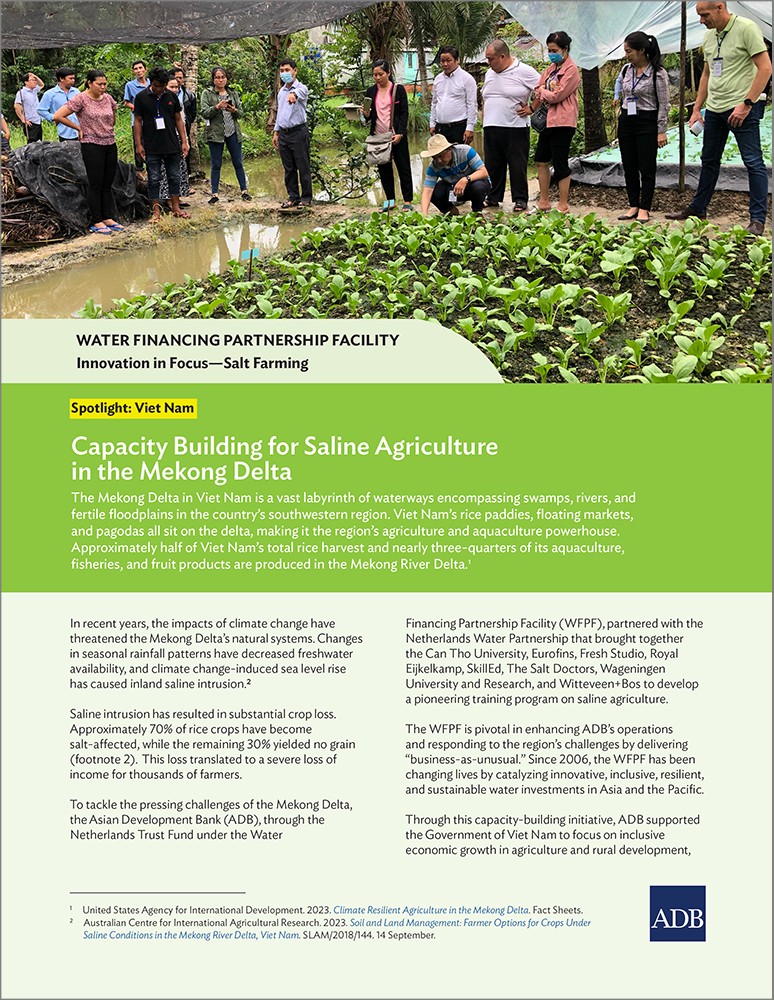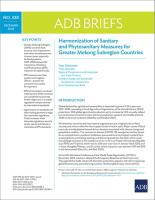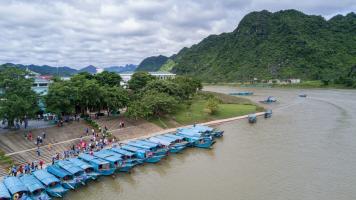Capacity Building for Saline Agriculture in the Mekong Delta—Innovation in Focus: Salt Farming
 Download (516.39 KB)
Download (516.39 KB)
Publication Type:
Publisher:
Asian Development Bank (ADB)
Publication:
February 2025
This case study shows how an ADB-backed adaptation project introducing saline-tolerant crops and hydroponic systems could support inclusive rural development.
In recent years, the impacts of climate change have threatened the Mekong Delta’s natural systems. Changes in seasonal rainfall patterns have decreased freshwater availability, and climate change-induced sea level rise has caused inland saline intrusion.
Saline intrusion has resulted in substantial crop loss. Approximately 70% of rice crops have become salt-affected, while the remaining 30% yielded no grain. This loss translated to a severe loss of income for thousands of farmers.
This case study explains how the Asian Development Bank is working with the Netherlands Trust Fund through the Water Financing Partnership Facility to tackle saline intrusion, which is driven by climate change and rising sea-levels. It details how the project promotes interactive learning and shows farmers why better soil management, crop selection, and shifting to systems such as hydroponics could improve the long-term agricultural potential of saline-affected areas.

